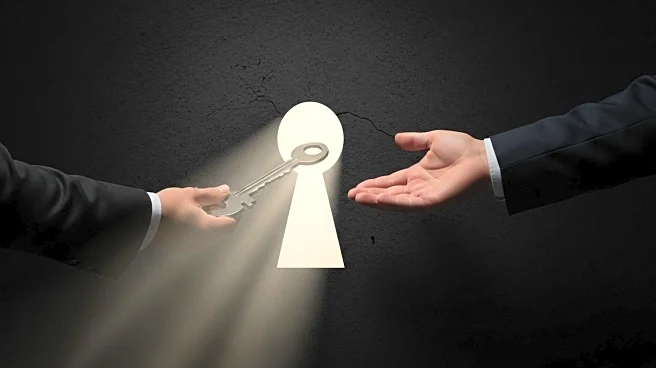What is the story about?
What's Happening?
The U.S. State Department has appointed an official to handle the case of Mohammed Ibrahim, a 16-year-old American-Palestinian detained in an Israeli military prison. Ibrahim has been held for over seven months, accused of rock throwing. His family has been campaigning for his release, meeting with U.S. lawmakers and civil rights organizations. The case has drawn significant attention, with over 100 organizations demanding U.S. intervention. The State Department's involvement marks an escalation in diplomatic efforts to secure Ibrahim's release, amid concerns about his health and treatment in detention.
Why It's Important?
The appointment of a State Department official to handle Ibrahim's case highlights the U.S. government's commitment to protecting its citizens abroad. This move could influence diplomatic relations between the U.S. and Israel, particularly regarding human rights and the treatment of detainees. The case has garnered attention from lawmakers and civil rights groups, potentially impacting U.S. foreign policy and advocacy for American citizens detained overseas. It underscores the importance of diplomatic efforts in addressing international human rights issues and supporting citizens facing legal challenges abroad.
What's Next?
Ibrahim is scheduled to meet with the appointed State Department official, which may lead to further diplomatic negotiations for his release. Lawmakers and civil rights groups are likely to continue advocating for Ibrahim, potentially influencing U.S. policy and diplomatic relations with Israel. The case may prompt discussions on the treatment of American citizens detained abroad and the role of the U.S. government in ensuring their rights and safety.
Beyond the Headlines
The case of Mohammed Ibrahim highlights broader issues of human rights and the treatment of detainees in conflict zones. It raises questions about the responsibilities of governments in protecting their citizens and advocating for their rights internationally. The involvement of civil rights organizations and lawmakers underscores the importance of collective advocacy in addressing human rights violations and supporting vulnerable individuals.

















